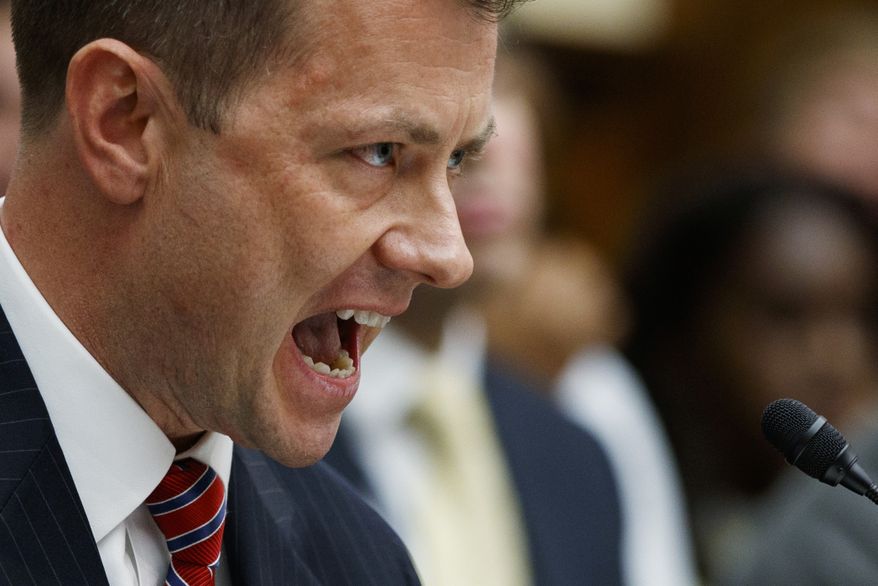
The Hillary Clinton presidential campaign and its possible links to Christopher Steele were discussed inside the FBI’s top echelons before it obtained court authority to wiretap a Trump associate based largely on Mr. Steele’s Democratic Party opposition research, according to the Justice Department’s inspector general report.
The report chronicles a tense standoff during which FBI agent Peter Strzok steered the Justice Department’s Office of Intelligence (OI) to finally sign off on a historic spy warrant on Trump campaign adviser Carter Page. A senior Justice attorney had wanted to know more about the political biases of Mr. Steele, a former British intelligence officer who later would be shown to be a Clinton campaign-paid researcher.
In one instance, Inspector General Michael E. Horowitz’s report disputed Mr. Strzok’s version of events on what he had shared with OI staff writing the spy warrant.
Mr. Strzok showed hostility toward candidate Donald Trump in private messages to his lover, FBI counsel Lisa Page. He talked of stopping Mr. Trump and of having an “insurance policy.”
The FBI’s sworn affidavit under the Foreign Intelligence Surveillance Act (FISA) eventually was submitted and approved on Oct. 21, 2016, omitting any reference to Mr. Steele’s possible Democratic Party/Clinton ties.
Today, Mr. Steele’s dossier has been proven to be all wrong when it comes to his dozen or so Trump-Russia conspiracy allegations, including the parts on Mr. Page. Special counsel Robert Mueller said he did not find a conspiracy and exonerated Mr. Page.
In 2016, the FBI knew Mr. Steele was paid by Fusion GPS through a law firm. The IG report depicts Mr. Strzok’s Hurricane Crossfire agents, as the FBI’s Russia probe was code-named, as not particularly aggressive in identifying the firm, Perkins Coie. The law firm represented the Clinton campaign and the Democratic National Committee, and funneled the money to Fusion to pay Mr. Steele about $160,000.
If the FBI had identified Perkins Coie, then presumedly its sworn FISA affidavit would have informed the FISA court that Mr. Steele’s allegations were partisan opposition research for the Clinton campaign to attack candidate Trump.










